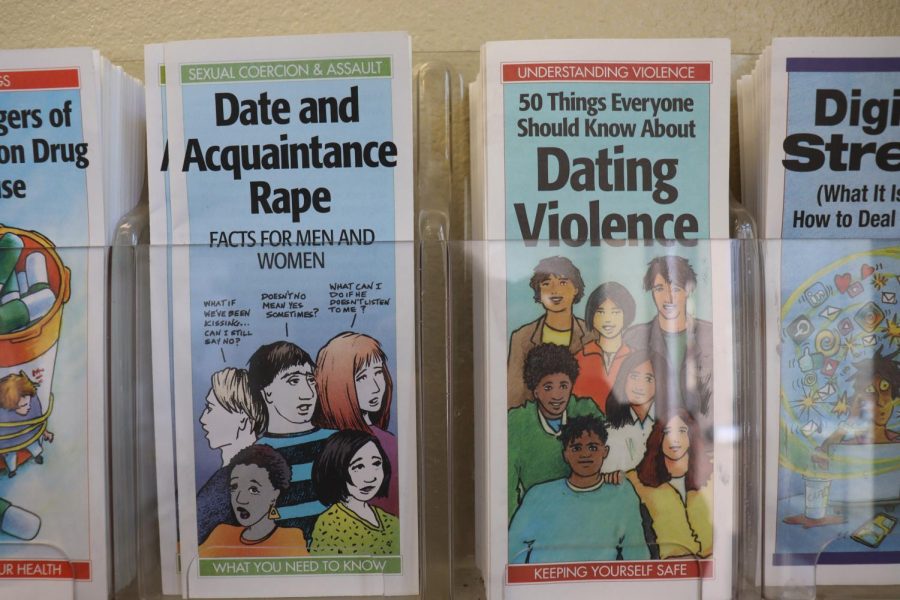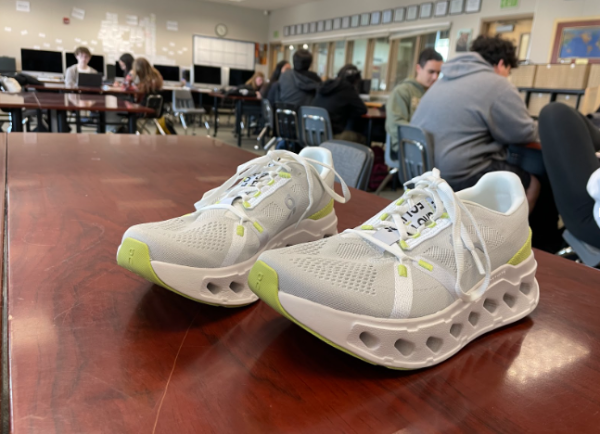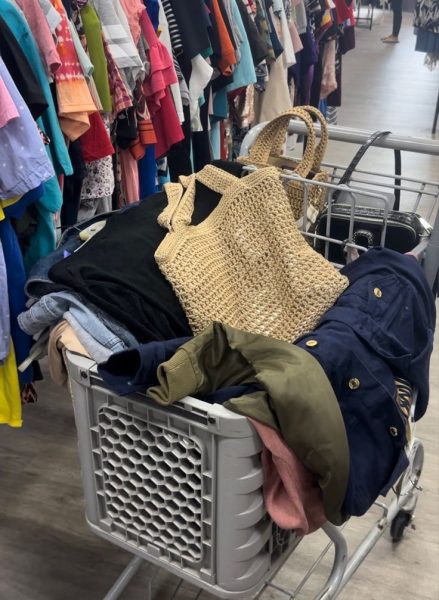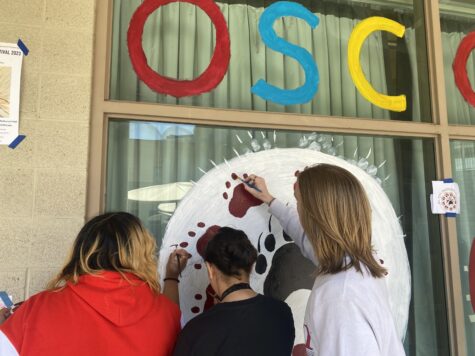Insufficient Information in Sexual Education Programs for Teens Only Hurts Them
A lack of correct information in sex education programs harms teens more than it helps them.
Photo by Kenzi Holmes
Pamphlets like these aren’t sufficient enough to teach young minds about sex.
Modern society is highly sexualized—you can find traces of people embracing their sexuality in everything from advertisements to TV shows. It’s no secret that nearly every American teenager encounters some sort of sexual experience during their four years of high school, so why shouldn’t they be prepared?
“Sex education should absolutely be required in public high schools for the safety of teens. They have the right to know about safe options and to know about their own body in general,” senior Brennan Hiatt said.
The purpose of sex health classes is to inform teenagers of the risks taken when engaged in these acts, and the precautions that are meant to protect someone and their partner. When using this information, teenagers and young adults can make educated decisions as they navigate the world of relationships. High school is meant to prepare students for college and life in the real world, so why shouldn’t this be included as well? It may make people uncomfortable to talk about sex and sexuality, but that discomfort is nothing compared to teen safety. Sex education gives teens the necessary information to keep them from contracting sexually transmitted diseases (STDs) and unwanted or unplanned pregnancies.
Sex education isn’t just about sex either, it’s about learning what is in a healthy and responsible teen relationship. With the right materials provided by the school districts’ education board, classes can teach teenagers the early signs of abusive relationships and provide the resources needed to get out of them. The world of teen dating is complicated, and with a combination of inexperience and immaturity, it can be easy to ignore warning signs in a relationship.
“It’s not only about sex, but how our bodies change from kids to adults. Sex education should be something that we normalize and learn how to talk about without discomfort,” senior Aimee Velasco said.
Some parents and teachers think that taking Sex Ed. can lead to teenagers becoming sexually active earlier, but studies show that this isn’t true. In the United States, there are three common types of sex education in high schools. One form of education is abstinence-only until marriage programs, which teaches that abstinence is the only correct method to stay safe and completely censors any information about contraception such as condoms and birth control. Then there are abstinence-plus programs, which give information about contraception but heavily stress abstinence. Finally, there are comprehensive programs, which teach that abstinence is the only 100% effective protection but also provide information about contraception and explain how it lessens the risk of infection and teen pregnancy. While abstinence-only until marriage programs are the most popular, according to Planned Parenthood, comprehensive ones are much more effective. In the U.S., 25 states require public schools to teach Sex Ed. with abstinence-only programs, but only 13 states are required to teach medically accurate information. This means that oftentimes teenagers are lied to about the effectiveness of condoms and birth control. This also deprives young adults of the information that they need to make educated decisions in critical scenarios.
In countries all over Europe, sex education is considered a right. It’s seen as a natural and healthy part of development, which translates to a healthier, more mature teen population. Students are given information and expected to make educated decisions when needed. Unfortunately, the U.S. sees higher HIV infection rates than France and Germany combined, which is mostly because our population isn’t properly educated about the dangers and risks of unprotected sex or sex in general. Our district provides sexual health information starting in secondary school from the “Positive Prevention Teaching Materials Developed Through the American Red Cross,” which stays along the lines of a comprehensive program. Parents are also given the option to excuse their child from some or all parts of the Sexual Health unit. If teenagers are given the proper tools and information about sex and sexual health, there will be an increase of happier and healthier teens in the United States.

(She/Her) Lilly Brown is a Senior who joined the Silvertip her freshman year and again this year. Lilly believes that having a school newspaper is the...

(She/Her) Kenzi Holmes is a Sophomore who is a brand new staff member at the Silvertip who joined in 2020. Kenzi believes that the students at Mission...











